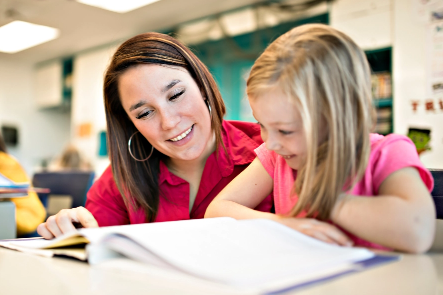
Work
Bridging neuroscience and education to improve reading outcomes
The UC/CSU California Collaborative seeks to bring together cognitive, social, and affective neuroscience research and education research and practice with the goal of improving student learning.
For example, decades of work have revealed critical insights into the reading brain and dyslexia. These insights have informed our understanding of the need to teach reading in ways that support the development of the multiple different processes that are required in reading acquisition, and that can be impeded in reading disabilities.



Our initiatives focus on research and applications with impact for our communities. We are…
Designating the UCLA Lab School (PreK-6, on the UCLA campus) as a laboratory “proof of concept” site where experts are developing new methods of identifying and supporting children with learning issues in an inclusive education setting.
Providing reading instruction resources for adolescents (e.g., WordBuilder), developed by CSU faculty, to LAUSD, other school districts, and the new California Bench to School Initiative for youth in the juvenile justice system.
Testing and providing models of the relationship between early screening and early instruction and intervention.
Bringing together researchers and teacher educators from across the UC and CSU systems to develop models of teacher preparation and professional development concerning literacy and dyslexia.
Developing a partnership with CAR-W.
Developing a partnership with researchers at UC Irvine on bilingual and bi-dilectical education.
Developing a partnership with USC and UCLA on the social-emotional components of literacy.
Learn More About Our Initiatives
The More You Know: How Teaching Multiple Aspects of Word Knowledge Builds Fluency Skills
The “Reading Brain” Is Taught, Not Born
The Science and Poetry of Reading
The Reading Brain and Dyslexia: What It Teaches Us for All Our Children
Teaching Adolescent Learners Who Are Struggling to Read
Making Reading Instruction Accessible for All Elementary School Students

Supporting pre-service teacher education programs to better prepare our future teachers
A major thrust of the work of the UC/CSU Collaborative is to align pre-service teacher education programs with a comprehensive, systematic, multi-component approach to teaching reading. It is important to train teachers from the start of their career in best practices for reading instruction. Our children have the best chance of developing strong literacy skills when their teachers use evidence-based strategies to teach reading.


Our work in this area ensures that our teachers have the best training possible. We are:
Integrating knowledge from the neurosciences about reading and dyslexia and how this knowledge base informs the instruction of reading in California’s teacher education programs.
Incorporating the comprehensive, systematic, evidence-based teaching of reading in UC and CSU literacy methods and other literacy-related teacher education coursework.
Developing a series of digital learning modules that align with the California Dyslexia Guidelines and are appropriate for pre-service teacher education.
In partnership with CDE, working with educators and dyslexia specialists across the state to create new Literacy Program Standards and Teaching Performance Expectations and thus better addressing the needs of neurodiverse learners, including those with dyslexia.
Providing syllabi and examples of teacher education programs that embed information on neurodiverse students and the science of reading into pre-service courses.

Providing in-service professional development to support our current teachers
Our students benefit tremendously from the experience and knowledge of our state’s educators and researchers. Together we are working to expand the knowledge base of our current teachers on the teaching of reading through opportunities for continuing education and professional development.


Working closely with California teachers and schools, we provide access to the latest educational research innovations. We are:
Consulting with LAUSD leaders on dyslexia, early assessment, and intervention, as well as on LAUSD teacher micro-credential certifications.
Training elementary teachers and reading specialists at three Southern California schools in two reading interventions, and the innovative, integrative use of these interventions to target a student’s particular areas of need.
Working closely with UCLA Center X and CSU campuses to offer workshops aimed at current classroom teachers around targeted support for students with learning issues.
Providing presentations on the neuroscience of reading, dyslexia, and reading in a digital culture to departments of education and school districts across the country.

Researching models for dyslexia intervention based on early identification of reading challenges
Our goal of universal literacy is best served when all our students receive the reading support they need at the earliest possible time. Thus, we aim to support schools in early identification of students’ reading challenges and to provide guidance about how to target intervention that meets each student’s specific strengths and needs.


Because there are multiple manifestations of reading disabilities, a critical aspect of our work concerns early identification and early differentiated intervention. We are:
Testing a model for early identification of students with dyslexia in three elementary schools across Los Angeles, funded by a U.S. Department of Education OSEP model demonstration grant.
Refining and disseminating the model for using early diagnostic data for targeted and early intervention.
Disseminating a new model for early targeted intervention of reading subtypes based on early assessment in three OSEP schools and 14 Orange County schools.
Working closely with the UCSF Dyslexia Center that launched its new diagnostic tool, Multitudes, for identifying reading issues at an early age.
Integrating the work of the UC/CSU California Collaborative on teacher training, early assessment, and targeted intervention with work of the new California Bench to School initiative.